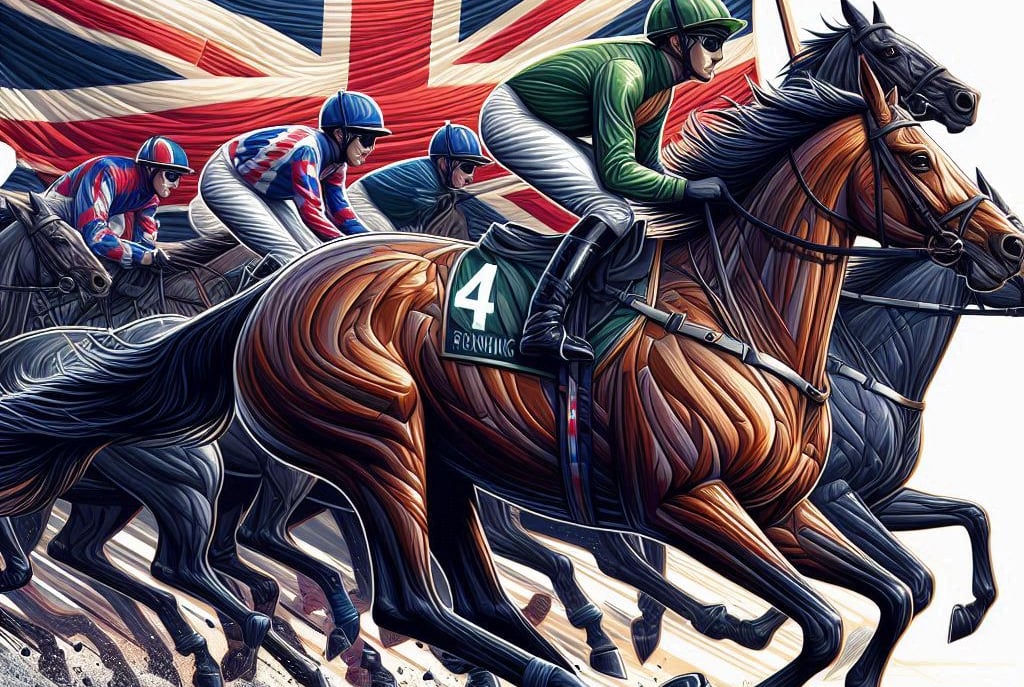Emmet and Martin Discuss BHA Whip Rules
Join Emmet and Martin as they delve into the latest updates on the BHA whip rules in horse racing. Discover expert insights and analysis on this crucial topic in horse racing news.
Ed Grimshaw
10/23/20243 min read


On the latest episode of the Final Furlong Podcast, host Emmet Kennedy and former Group 1-winning jockey Martin Dwyer took no prisoners as they delved into the British Horseracing Authority’s (BHA) whip rule fiasco following the disqualification of Alphonse Le Grande in the Club Godolphin Cesarewitch Handicap on Saturday 12 October, . Their conversation exposed the staggering contradictions between the BHA’s image-polishing efforts and the realities faced by jockeys, punters, and racing insiders. Meanwhile, the BHA's relentless focus on public perception, aka its "social license", has left everyone wondering if racing’s integrity is being sacrificed for PR points.
And to top it all off? Brant Dunshea’s recent defence of the new rules on ITV looked more like the Southampton back four on a particularly bad day—scrambling, out of position, and leaking goals at every opportunity. If Dunshea’s job was to reassure the public and the racing community, well, mission not accomplished.
The Whip Rule Mess: A PR Move Gone Wrong?
Martin Dwyer and Kennedy didn’t mince words about the BHA’s attempt to “clean up” racing’s image. The new whip rules, introduced in a blaze of PR glory, have only created confusion. Breaches have spiked from 3.77% of Jockeys in 2020 to 40% today, a figure so ludicrous that you have to wonder if even the BHA knows what it’s doing. The goal was to show the public that racing takes welfare seriously, but instead, it’s left jockeys penalised and punters baffled.
Dwyer was particularly vocal about the absurdity of these changes. The ProCush, a tool specifically designed to ensure no harm comes to horses, is still treated like a welfare concern. Why? Because it looks bad. And here’s where the BHA’s obsession with its “social licence” becomes a tangled mess. Rebranding the whip might soften the terminology, but it doesn’t change the fact that to the public, it still looks like a jockey is striking a horse. What’s more, the BHA admits they lack the resources to actually reeducate the public on these finer points, leaving the sport stuck in a loop of misunderstanding.
Jockeys Silenced by a "Verbal NDA"?
If confusing rules weren’t enough, jockeys have reportedly been gagged by what’s either a verbal NDA or a polite-but-firm directive of confidentiality. Whether or not it’s a formal document, the message is clear: don’t talk about the chaos. Dwyer pointed out how this lack of transparency has left jockeys—the people responsible for enforcing these rules—feeling completely alienated. And all of this is happening while the Professional Jockeys Association was dealing with internal management chaos. Timing, as they say, is everything.
So, while the BHA pats itself on the back for improving racing, the reality is that jockeys are facing race disqualifications days after the event, and punters are losing their bets without understanding why. If there’s one thing worse than a bad PR move, it’s making your own stakeholders feel like they’ve been left in the dark.
The Integrity Question: Where’s the Logic?
Dwyer also raised a critical point about racing’s integrity. The BHA’s decisions seem more focused on PR optics than fairness in the sport. Punters can bet on a race, only to find out days later that their winning jockey was disqualified over a minor whip breach. Meanwhile, interference rules, which are far more complex and have a direct impact on a race's outcome, are dealt with in real-time. So why the delay with the whip rules?
In a game where milliseconds and inches matter, why are jockeys being penalized after the fact for something that doesn’t affect the race outcome? The BHA’s handling of this has left many, like Dwyer, feeling that the sport’s credibility is being eroded. The focus on optics rather than actual welfare improvements has created a situation where no one—not the jockeys, not the fans, and certainly not the punters—knows what’s going on.
Conclusion: Racing’s Future in the Balance
In the end, what emerged from the Final Furlong Podcast was a damning critique of the BHA’s entire approach to welfare and rule enforcement. The Horse Welfare Board’s “A Life Well Lived” may sound good on paper, but the contradictions in its execution are becoming hard to ignore. The BHA’s fixation on public perception has led to confused rules, miscommunication with jockeys, and a growing frustration among racing’s core participants.
If racing is to survive, it needs to focus less on rebranding and optics and more on real transparency, practical welfare solutions, and treating its jockeys as partners in the sport’s success—not scapegoats for PR blunders.
http://media.britishhorseracing.com/bha/Welfare/HWB/WELFARE_STRATEGY.pdf
